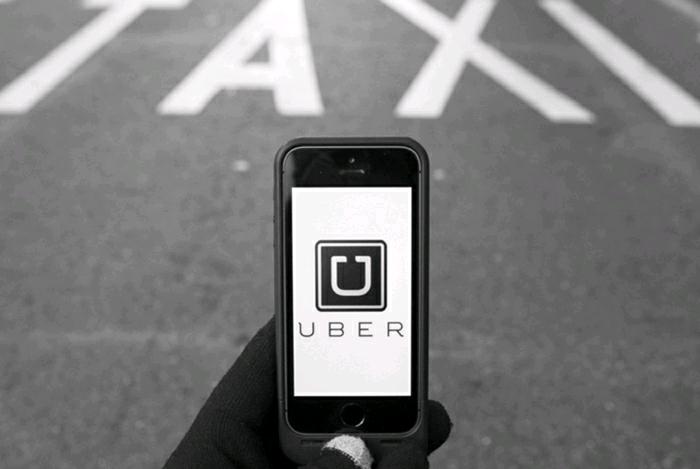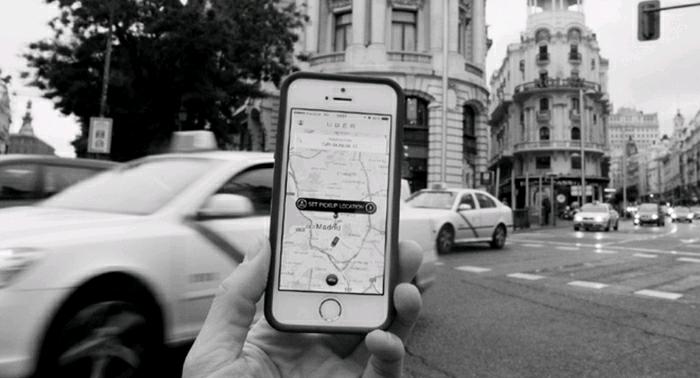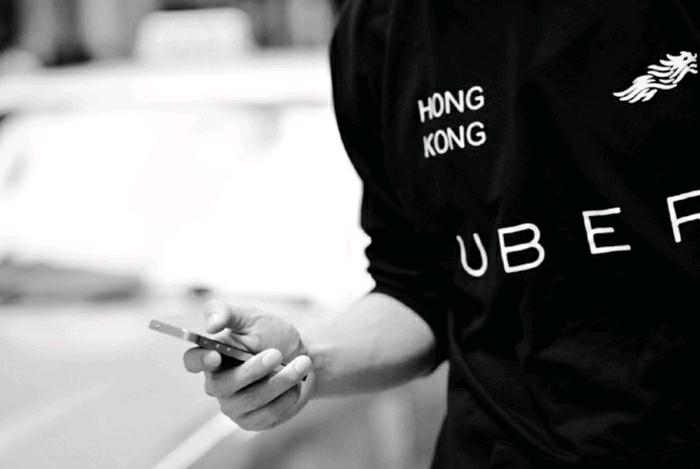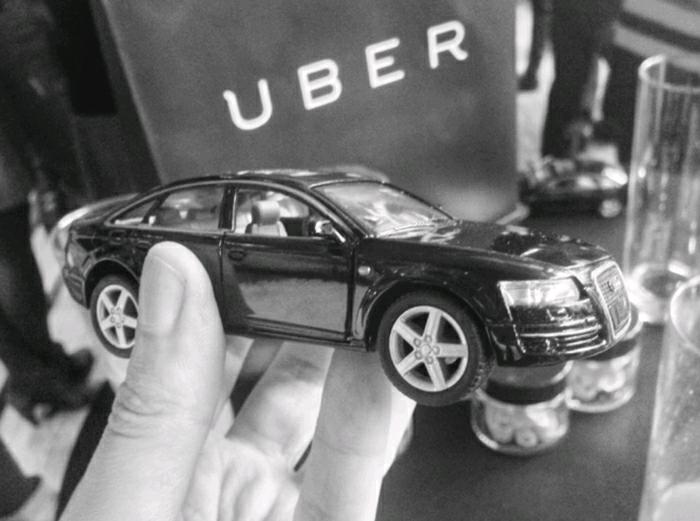Uber Stops Dodging Regulators
Uber stops using Greyball‘secret program
Uber says it will ban a se- cret software tool from being used to evade undercover regulators.
The software, called Greyball, seeks to identify officials around the world trying to catch Uber drivers operating illegally. It then denies them service.
The ride-hailing firm has been using the tool to secure early access to cities where its operations had not yet been authorized.
But having defended the system just a few days ago, it has now done a U-turn. "We are expressly prohibiting its use to target action by local regulators going forward," said Ubers chief security officer Joe Sullivan.
He said the same technology had also been used for many other purposes, including for marketing promotions and deterring Uber riders using the app in violation of the companys term of service.
T hese are understood to include stopping users aiming to physically harm drivers and targeting competitors looking to disrupt operations. These uses will not be affected by the ban.
Mr Sullivan said that because of the way the system was configured, it would take some time to ensure the prohibition was fully enforced.
What is Greyball?
Greyball identified regulators posing as ordinary passengers, by collecting data on the location used when ordering a taxi and determining whether this coincided with government offices.
A report by The New York Times found that it also checked credit card information to establish whether the user was linked to an institution or law enforcement authority.
Uber, the report added, even visited phone shops to trace smart phones bought by city officials setting up multiple accounts in an effort to catch the companys drivers.
Once individuals suspected of attempting to entrap drivers were identified, they would be served a"fake" version of the Uber app, with fictitious cabs on view. If there were they were successful in ordering a real one, they would have their booking cancelled.
Uber has been hit by a series of controversies recently. A video of its chief Travis Kalanick swearing at a driver appeared on social media, and there had also been allegations the company had routinely ignored cases of sexual harassment.
Uber Boss Travis Kalanick Forced to Apologise
Uber boss Travis Kalanick has been forced to apologise after footage emerged of him swearing at one of the companys drivers in a row over fares.
The video shows the chief executive getting increasingly riled after driver Fawzi Kamel complains his income has fallen because of Ubers fare changes.
Mr Kalanick has now apologised for the outburst in an email to staff, saying he was “ashamed” of his behaviour and needed to “grow up”.
The footage, published by Bloomberg, shows Mr Kamel raise the topic of fare changes after picking up Mr Kalanick, 40, in early February.
“You have the business model in your hands, you can have the prices you want but you choose to buy everybody a ride,” says the 37-year-old driver.
“We could go higher and more expensive.”
He later adds: “Im bankrupt because of you.”
But Mr Kalanick repeatedly refutes the drivers claims, describing them as “bull***t”.
He tells him: “Some people dont like to take responsibility... They blame everything in their life on somebody else. Good luck!”
According to the BBC, Mr K alanick sent staff a memo stating: "By now Im sure youve seen the video where I treated an Uber driver disrespectfully, To say that I am ashamed is an extreme understatement.
"My job as your leader is to lead…and that starts with behaving in a way that makes us all proud. That is not what I did, and it cannot be explained away.
"Its clear this video is a reflection of me - and the criticism weve received is a stark reminder that I must fundamentally change as a leader and grow up. This is the first time Ive been willing to admit that I need leadership help and I intend to get it.
"I want to profoundly apologise to Fawzi, as well as the driver and rider community, and to the Uber team."
Uber Drivers in Taiwan Call for Legalization
Hundreds of Uber drivers joined a motorcade in Taiwan recently to protest against the authoritys decision to slap a suspension ban on their services.
The motorcade, with cars carrying Uber logos or slogans such as "Legalize Uber," drove around the transportation authoritys building. Several protesters also sat in front of the building, holding placards calling for a meeting with the chief transportation official.
Uber announced that it would suspend services in Taiwan starting Feb. 10 following the transportation authoritys issuance of 11 fines for Uber, which totaled over 230 million new Taiwan dollars (7.4 million U.S. dollars).
Taiwan regards Uber services as illegal as it is not registered as a taxi service, and allegations of tax avoidance. Uber said the allegations were baseless.

"Were not a taxi company so its absurd to ask us to register as one. We are a smart phone application that connects people willing to share their ride with people needing one," Uber responded earlier in a statement.
The U.S.-based ride-hailing app entered Taiwan in 2013 and, up until the ban, operated in four cities, including Taipei and Kaohsiung. It said it has provided 15 million trips, with more than 1 million people having downloaded the app and 16,000 citizens becoming drivers.
Local taxi drivers accuse the firm of illegally operating taxi services, which has affected their income.
Uber released a farewell letter saying it was unwilling to and hoped it was not forced to, withdraw from Taiwan.
"The decision has affected more than 1 million people that rely on Uber, but these endless fines make it hard to survive in such an environment," it said.
In another statement, the Uber Taiwan team said they hope to restart conversations with the islands administration to find a way to allow ride-sharing to flourish.
"We will do everything we can to restart the service," the statement read.
To merge with a Chinese Company
Ride-hailing app Uber has failed to gain significant market share on mainland China since it debuted there last year so a merger could prove beneficial.
Ride-hailing app Uber is reportedly in talks to merge with its domestic Chinese competitor Yidao Yongche, with a deal in sight very soon.
Talks between the two had been ongoing for months, but were accelerated due to the union of two other major competitors Didi Dache and Kuaidi Dache, reports in the Chinese media said.
Details of the deal were not given, but news reported that search giant Baidu – a stakeholder of Uber and Yidao – was the main facilitator behind the merger and that the deal would be signed very soon.
Yidao chief executive Herman Zhou stoked rumors about the imminent merger after posting on his WeChat account a photo of an aircraft carrying another plane. He captioned it: “We must run towards the boundless universe.”
Both Uber and Yidao have not responded to requests for confirmation or comment.
Uber has failed to gain significant market share on mainland China since it debuted there last year, so a merger with a strong local partner would help it gain a foothold in the market.
Didi Dache and Kuaidi Dache, two of the mainlands leading taxihailing apps, said that they would merge to create one of the worlds largest smart phone-based transport services.
The two have attracted more than 100 million users through aggressive expansion in the regular taxi market.
Yongche was worried after the Didi-Kuaidi merger was announced, said industry observer Doug Young. Yongche even complained to Chinas state regulator that the deal would be anti-competitive.
This new Uber-Yongche marriage looks like a good plan for all three parties involved, Young said, as it would give Yongche more economy of scale and let Uber get two strong local partners in the business.
“Thats quite important in China, where foreign companies are often discriminated against by Beijing and regional governments, which prefer to see partnerships with local firms,”he said.
“The new company also fits nicely with Baidus own mapping service, which was already being integrated with Ubers China business as part of the formers investment in the latter.”
Baidu joined Yidao Yongches series C funding last September and signed a strategic cooperation and investment agreement with Uber in December.
Yidao Yongche started as a car rental website at its inception in 2010, and caught up by shifting to mobile as location-based technology went mainstream.
Now most of its customers come from its smart phone app, and half the ride requests are made in real-time. It is now operating in 76 mainland cities, involving a total of more than 100,000 cars under its service.

